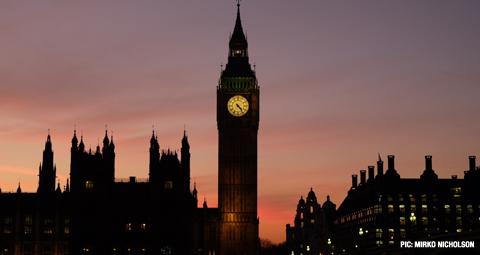May 11 | ![]() 0 COMMENTS
0 COMMENTS ![]() print
print

Tackling Westminster’s unsavoury atmosphere of harassment
CAROL MONAGHAN MP on how Christian values can help us overcome abuse in politics and wider society
After 20 years of teaching in Glasgow, my transition to politics was like landing in an alien world. Specifically, I moved from an environment where gender was generally irrelevant to one where gender stereotypes were deeply entrenched.
When I was first elected in 2015, I was the 400th female ever to sit in the Westminster Parliament. In contrast, there are more than 400 male MPs in the current cohort. Whilst a common response to this is to ask why gender should matter, in the current landscape of bullying, harassment and continued inequality, the answer becomes clearer.
The boorish behaviour of some (mainly male) MPs contributes to an often unsavoury atmosphere around Westminster. I’m sure every female on the parliamentary estate could give numerous examples of harassment, be it online, aggressive interactions in the chamber or indeed unwanted sexual advances.
Despite this threatening culture, most female MPs simply accept and carry on. However, this poor behaviour has far wider implications, with parliamentary staff and visitors also affected.
I had the unfortunate experience of sitting on a committee when a female witness was being subjected to a particularly aggressive line of questioning from a male MP. I could see that she was becoming upset, but still he continued. Finally, when his onslaught was complete, she left the room. I followed her out to thank her for her evidence only to find her in tears in the corridor and, although I ensured the man responsible was made aware of the impact of his behaviour, the woman had had an unnecessary and traumatic experience.
It is therefore no surprise to me that allegations of harassment have been made against some MPs in the wake of the #MeToo campaign. Combining a highly stressful atmosphere, long working hours and plentiful alcohol with some enormous egos is never going to result in a healthy workplace environment.
Young parliamentary staffers who do not wish to cause offence, or indeed be considered rude, can find themselves in a situation where fending off advances becomes difficult.
Chatting about this recently with a male MP, we discussed how dating should be approached when the woman is in a junior position. We concluded that men should consider adopting the attitude for all women that they would use when approaching women in senior roles: instantly the relationship becomes far more respectful, and the woman has the opportunity to engage or disengage as she chooses.
But for women who put their heads above the parapet as elected representatives, the abuse is not confined to the Westminster estate. Despite our thick political skins, MPs are not immune to intimidation, with social media providing an easy platform to those who wish to hurt or offend.
When Donald Trump was first elected as US President, I tweeted: “Racism, xenophobia, sexism and homophobia have just been legitimised. We should all be very afraid.”
This unleashed the American hard-right, including some Nazi sympathisers, who started a campaign of abuse which included death threats directed at me and my family. Thankfully these threats were coming from individuals in the US who most likely did not even hold a passport. However, it does demonstrate how frightening and toxic the internet can be.
Regardless of party allegiances, tolerance, decency and respect should be central to all our political interactions, and MPs should not be met with vitriolic messages suggesting they should, ‘get what’s coming’ to them.
We cannot end up in a situation where people generally, and women in particular, do not engage in debate because of fears of being targeted. Indeed, being able to freely express views is essential for our democracy.
So how do we tackle this culture of abuse? Social media companies are quick to take down material that is in breach of copyright; they need to be compelled to react equally quickly to offensive material and material that incites hatred or even violence.
But mainstream media also have a role to play.
When politicians get death threats as a result of how they vote, the headline writers who accuse them of being mutineers and saboteurs must bear some of the responsibility.
Ultimately we all have a duty to fight abuse and to call out aggression when we are witness to it.
How many of us are guilty of continuing to buy newspapers that are using inflammatory headlines?
To tackle harassment in Westminster and in wider society we must all take positive action. By doing it collectively, we can face down this deeply unpleasant phenomenon. We must think about the words we use, the way in which we manage ourselves in our work and personal lives, and the moral code we instil in our children.
Our Christians values will prevail only through the example we set and the behaviour we model.
– Carol Monaghan is the SNP MP for Glasgow North West.










